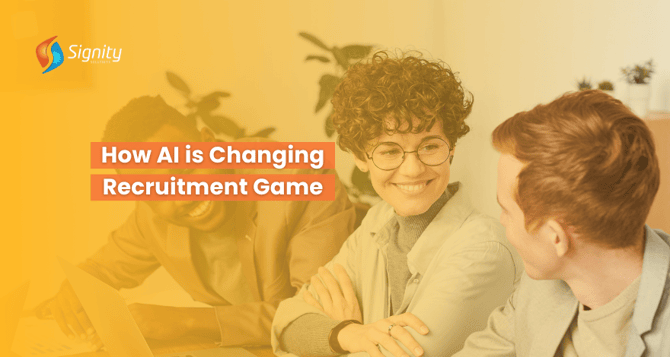AI in Recruiting: How AI is Changing the Recruitment Game
AI is revolutionizing recruitment by enhancing candidate sourcing, reducing bias, and improving matching accuracy. Automated screening and personalized experiences streamline the process, saving time and costs. While AI boosts efficiency and data-driven decisions, ethical considerations and bias mitigation remain crucial for fair hiring practices.

The landscape of recruitment is undergoing a significant transformation, driven by advancements in artificial intelligence (AI). AI technologies are reshaping how companies source, evaluate, and hire talent, offering innovative solutions to long-standing challenges in the recruitment process. From enhancing efficiency to promoting diversity, AI is indeed a game changer in the world of talent acquisition.
What is AI Recruiting?
AI recruitment refers to the application of artificial intelligence technologies to automate and enhance various aspects of the hiring process. Imagine a toolbox filled with powerful tools to streamline tasks, improve candidate matching, and make data-driven decisions. That's essentially what AI recruiting offers. These tools can be used for everything from resume screening and candidate sourcing to conducting initial interviews and analyzing recruitment data.
Are Recruiters Going to be Replaced by AI?
While AI is undoubtedly a game-changer, it's important to dispel a common myth: AI is not here to replace human recruiters. AI excels at automating repetitive tasks and analyzing vast amounts of data, but it cannot replicate the human touch and judgment required for successful hiring.
Here's Why Recruiters will Remain Crucial
Understanding Company Culture
AI can't assess a candidate's cultural fit within a company. Recruiters, with their deep understanding of the organization's values and work environment, can ensure a good fit beyond just skills and experience.
Building Relationships
The human element is essential for building rapport with candidates and creating a positive candidate experience. Recruiters can answer questions, address concerns, and provide guidance throughout the hiring process, something AI currently struggles with.
Strategic Decision Making
Recruiters use their experience and judgment to make complex hiring decisions. While AI can provide valuable insights, the final call on who gets hired will likely remain with human recruiters.
How Are Companies Using AI for Recruitment?
AI is being used in a variety of ways to enhance the recruitment process:
Automated Resume Screening
AI algorithms can analyze resumes in seconds, identifying skills, experience, and qualifications that match job requirements. This frees up recruiters' time to focus on more strategic tasks like candidate interviews and assessments.
Enhanced Candidate Sourcing
AI can search the web and vast job board databases for potential candidates that fit specific criteria. This allows companies to tap into a wider talent pool beyond traditional channels, potentially discovering hidden gems that might not have applied otherwise.
AI-Powered Interviews
While AI isn't ready to replace human interviewers entirely, it can conduct initial screening interviews. These virtual interviews can use chatbots or video analysis to assess a candidate's basic qualifications and communication skills, saving recruiters time and allowing them to focus on more in-depth interviews with promising candidates.
Data-Driven Decision Making
AI can analyze vast amounts of recruitment data to identify trends and patterns. This data can be used to improve job descriptions, assess the effectiveness of sourcing strategies, and even predict candidate success. This allows companies to make data-driven decisions throughout the hiring process.
Reduced Bias
By focusing on objective criteria like skills and experience, AI can help reduce unconscious bias in recruitment decisions. This allows companies to build a more diverse and qualified workforce.
The Future of Recruitment
The future of recruitment lies in collaboration. AI development will continue to evolve, offering even more sophisticated tools for streamlining tasks and providing valuable insights. However, the human touch will remain irreplaceable. Recruiters' expertise in company culture, relationship building, and strategic decision-making will be crucial.
 By leveraging the strengths of both AI and human intelligence, companies can build a recruitment process that is efficient, effective, and fair for everyone.
By leveraging the strengths of both AI and human intelligence, companies can build a recruitment process that is efficient, effective, and fair for everyone.


%201-1.webp)


.png?width=344&height=101&name=Mask%20group%20(5).png)









.png?width=352&name=microsofts-recall-feature%20(18).png)







